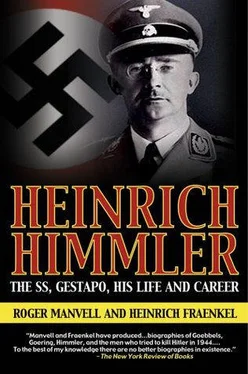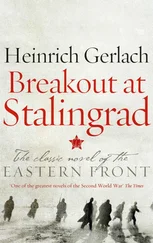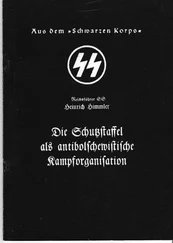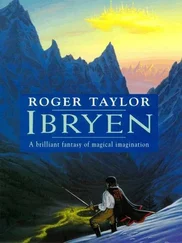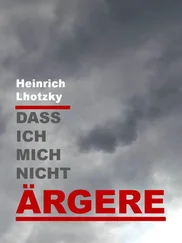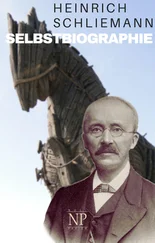Residences (1934); relations with wife and family; and Roehm purge; and SS. in Austria; and murder of Dollfuss; purges ranks of SS. (1934); insistence on sport; and concept of Teutonic knights; founds Wewelsburg as SS. retreat; and Henry the Fowler; and Catholic Church; founds Ahnenerbe; responsibility for principle of concentration camps; relations with other Nazi leaders during midthirties; relation with High Command; and Blomberg and Fritsch cases; addresses High Command on function of SS. (1934)(1940); founds Lebensborn movement; has two children by mistress Hedwig; on SS.; on pan-Germanic culture; and the occult; and the Anschluss; appointment of Eichmann as specialist in Jewish affairs; persecution and extermination of the Jews: in Austria; first conception of genocide; on duties of Security Police; on necessity for genocide; extermination of Jews and Slavs in Russia; makes Auschwitz centre for extermination under Hoess; the ‘final solution’, chap. v passim ; slave labour; instructions for executions; sale of emigration permits to rich Jews; and Warsaw Ghetto; and Theresienstadt Ghetto.
Conducts tour of Sachsenhausen; attitude to camps; sent by Hitler on diplomatic mission to Italy, and to Czechoslovakia; the attack on Poland — operation Himmler; relations with other Nazi leaders during war; their characterisation of Himmler; later relationship with Heydrich; increasing ill-health; subservience to Hitler; in Poland; appointed head of Reich Commissariat for Consolidation of German Nationhood; on policy in Poland; German racial re-settlement scheme; decrees forcible adoption of racially desirable children; and euthanasia of mentally unfit; promotes medical experiments in concentration camps; encourages controlled breeding by SS., later racial obsessions; parsimony and financial straits; and the campaign in the West (1940), wartime development of the Waffen-SS., of the Ahnenerbe; relations with Kersten; orders extermination of defective prisoners in the camps; orders collection of ‘sub-human’ skulls; extends powers during war; directed by Hitler to prepare for Russian campaign.
Oppressed by decision on genocide; reaction to Heydrich’s appointment to Prague; becomes increasingly subject to Schellenberg’s influence; on the Russian front; reaction to assassination of Heydrich; attempts to control industry; forms international SS.; plans for world domination by Germany; speech on destruction of Warsaw Ghetto; visits Auschwitz; briefs Skorzeny on rescue of Mussolini; applies Hitler’s leadership system to his own staff; sends reproofs to SS. officers; concern over Hitler’s health and sanity; first considers independent peace negotiations; fails to oppose Ribbentrop; later influence of Kersten on, chaps. vi and viii passim; extends military ambitions; admiration for Jenghis Khan; regains confidence of Hitler after misunderstanding; becomes Minister of Interior (August 1943); relations with Bormann; takes over V2 from Army; destroys Abwehr. Mature beliefs concerning medicine; on pan-Germanic culture; destruction of Bolshevism; alliance with other Nordic races to control world; on place and function of women; on homosexuality; on religion and the Churches; on the Jewish race; on violence; on genocide; on the leadership principle.
Meets Goring and Ribbentrop on Allied landing in Normandy; actions after attempt on Hitler’s life (July 1944); appointed Commander-in-Chief, Reserve Army; negotiates sale of Jewish liberties; deportations and evacuations from camps; as Army Commander; uses Free Russian forces in the East; helps found German Home Guard; fear of Hitler; negotiates with Bernadotte on release of prisoners from camps and on peace terms; discusses peace negotiations with Goebbels; final meeting with Hitler; meets Masur to discuss liberation of Jews; seeks meeting with Allied Commanders; considers founding new Party without Hitler; hopes Allies will join with Germany to crush Bolshevism; dismissal by Hitler; final relations with Doenitz; arrest and interrogation by British; suicide.
Described by Bernadotte; by Bormann; by Dornberger; by Goebbels; by Guderian; by Hitler; by Kersten, chap. vi passim; by Doris Mehner (secretary); by Schellenberg; by Westphal.
Himmler, Marga (wife)
Hindenburg, Field-Marshal Paul von
Hitler Adolf, character; leads Munich putsch (November 1923); in Landsberg castle; concept of the SS.; attitude to Himmler and other prominent Nazis up to 1933, et seq.; attitude to S.A.; intrigue prior to coming to power; action on coming to power; declares amnesty for political prisoners (1933); desires to centralize control; gives Himmler control of police and Gestapo; and Roehm purge; decrees independence of SS. from SA; becomes Supreme Head of State on death of Hindenburg; and murder of Dollfuss; compares Himmler to Loyola; permits limited military training for SS; relations with High Command during and after the Blomberg and Fritsch cases; in Austria after Anschluss ; employs Himmler as diplomat; and Czechoslovakia; attitude to his leaders at the beginning of war; appoints Heydrich Chief of Reich Security Office; Reichstag speech on Poland; orders extermination of mentally unfit; campaign in the West (1940); restricts Waffen SS; prepares Russian campaign; reaction to assassination of Heydrich; and leadership principle; Himmler’s medical report on; leaders’ concern over his health; isolation at various headquarters; regains confidence in Himmler after misunderstanding; at time of Allied landings in Normandy; attempt on his life (July 1944); agrees to demotion of Himmler as Army Commander in East; last meeting with Himmler; decides to stay in Berlin; dismisses Goring; dismisses Himmler; suicide
Hoepner, Gen. Erich
Hoess, Rudolf
Hoffmann, Heinrich
Hossbach, Col. Friedrich
Höttl, SS. Col. Wilhelm
Hohenzollern-Sigmaringen, Prince of
Hunsche, Eichmann’s associate
Immfeld, Mme.
International Military Tribunal (the Nuremberg Trial (1945—6))
International Tracing Centre (Arolsen)
Jehovah’s Witnesses
Jodl, Alfred
John, Otto
Kaduk, Oswald
Kaltenbrunner, Ernst, SS. Gen.
Kaminski
Kammler, Heinz
Kaufmann, Karl
Keitel, Field-Marshal Wilhelm
Keppler, Wilhelm
Kersten, Felix, chaps. vi and vii passim
Kersten, Frau Irmgard
Kiep, Otto
Kiermaier, Josef
Kogon, Eugen
Korherr, Dr
Kramer, Josef
Kripo (the Criminal Police)
Krosigk, Count Schwerin von
Krueger, Friedrich
Krumey, Eichmann’s associate
Lammers, Dr Hans
Langbehn, Carl
Lebensborn movement
Leibstandarte Adolf Hitler
Ley, Dr Robert
Lidice, martyrdom of
Lippe-Biesterfeld, Prince
Loritz family (Munich)
Lüdecke, Kurt
Ludendorff, Gen. Erich, F. W.
Ludwig II, Prince of Bavaria
Luther, Martin
Macher, Major
Mähner, Doris
Masur, Norbert
Mecklenburg, Prince von
Meisinger, Josef
Mengele, Dr
Moltke, Helmuth Count von
Montgomery, Field-Marshal Lord
Morell, Dr Theodor
Mueller, Heinrich
Müller, Dr Josef
Munich putsch (November 1923)
Munich Pact (1938)
Murphy, Col. L. M.
Musi, Jean-Marie
Mussolini, Benito
Nanette-Dorothea (Himmler’s illegitimate daughter)
Nazi regime, nature of
Nebe, Artur
Neurath, Baron Constantin von
Nuremberg Trial (see International Military Tribunal)
Ofner, Dr Abram
Ohlendorf, Otto
Olbricht, Col. Gen. Friedrich
Papen, Franz von
Payne-Best, Capt. S.
Pohl, Oswald
Popitz, Johannes
Pringsheim, Fritz
Pruetzmann, SS. Gen.
Quisling, Vidkun
Race and Resettlement Office
Raeder, Adm. Erich
Rankine, Paul Scott
Читать дальше
